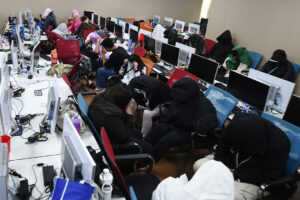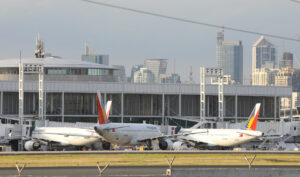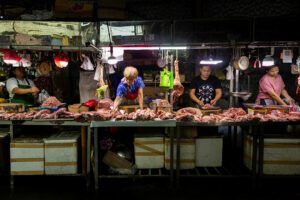Gov’t told to boost info campaign against scam hubs

THE PHILIPPINES should conduct an awareness campaign amid the rising cases of overseas Filipino workers (OFW) being trafficked to scam hubs in Southeast Asia, a labor expert said on Sunday.
“This should at least be a baseline response,” Benjamin B. Velasco, an assistant professor at the University of the Philippines-Diliman School of Labor and Industrial Relations, said in a Facebook Messenger chat.
He said regional agreements among Association of Southeast Asian Nations (ASEAN) member-countries could help lessen the incidents of Filipino workers being trafficked to scam hubs.
Last month, Senator Ana Theresia Hontiveros-Baraquel sought stronger regional cooperation to stop the spread of scam hubs and the illegal recruitment of Filipinos.
In a Senate committee hearing, she said Philippine Offshore Gaming Operators (POGO) had only relocated to other southeast Asian countries after being banned by the government last year.
Philippine President Ferdinand R. Marcos, Jr. banned POGOs due to their links to organized crime such as human trafficking.
“Because trafficking passes through backdoor entries, even formal agreements cannot completely stop the operation of syndicates and flow of trafficked migrants,” Mr. Velasco said.
The Bureau of Immigration earlier said scam hubs abroad operating in the guise of online gambling or call centers continue to recruit Filipinos through social media platforms. They are typically trafficked to scam hubs in Cambodia or Myanmar.
“The government has a robust ecosystem for aiding OFWs,” Mr. Velasco said. “It is just a matter of operating it, from providing immediate aid to repatriating them back to the Philippines.”
Mr. Velasco said apprehending scam hub operators in Myanmar might be difficult amid a civil war.
“What complicates matters is the civil war in Myanmar, which means the Burmese state is weak in terms of enforcement,” he said. “Most scam hubs are located in the Thai-Burma border, which is a grey area in terms of enforcement.”
More than 200 Filipinos who were forced to work in Myanmar scam hubs were repatriated last March, according to the Foreign Affairs and Migrant Workers departments.
Advocacy group Digital Pinoys on Sunday urged Filipino voters to reject candidates with links to POGO, citing their links to criminal syndicates.
“These are not just gaming businesses,” it said in a statement. “They are organized networks that bring instability, fear and criminality into our communities.”
The group raised concerns over emerging evidence that some political aspirants are either receiving support from POGOs or are directly involved in their operations.
“When those who aim to govern us are the same ones enabling or operating these criminal enterprises, how can we expect justice, safety, or good governance?” it added.
POGOs eroded public safety, weakened institutions and abetted state corruption, Digital Pinoys said.
“A vote for a POGO candidate is a vote for impunity and exploitation,” it said. “We call on all Filipinos to choose leaders who are committed to the rule of law, transparent governance and genuine public service.”
“This election is an opportunity to defend our institutions and protect our future. Let’s use our vote wisely, for our communities, for our country, and for a better tomorrow.”
Filipinos will pick a new set of congressmen, 12 of the 24-member Senate and thousands of local officials on May 12.
POGOs, which were licensed to provide online gambling services to clients overseas, rapidly expanded in the Philippines beginning in 2016, bringing in billions in revenue, before President Ferdinand R. Marcos, Jr. banned them last year.
The industry had been criticized for its links to human trafficking, cybercrime, money laundering, tax evasion and violent crimes, prompting mounting public backlash.
In ordering their ban, the President cited national security concerns and the industry’s negative effect on communities. — Adrian H. Halili and Chloe Mari A. Hufana




